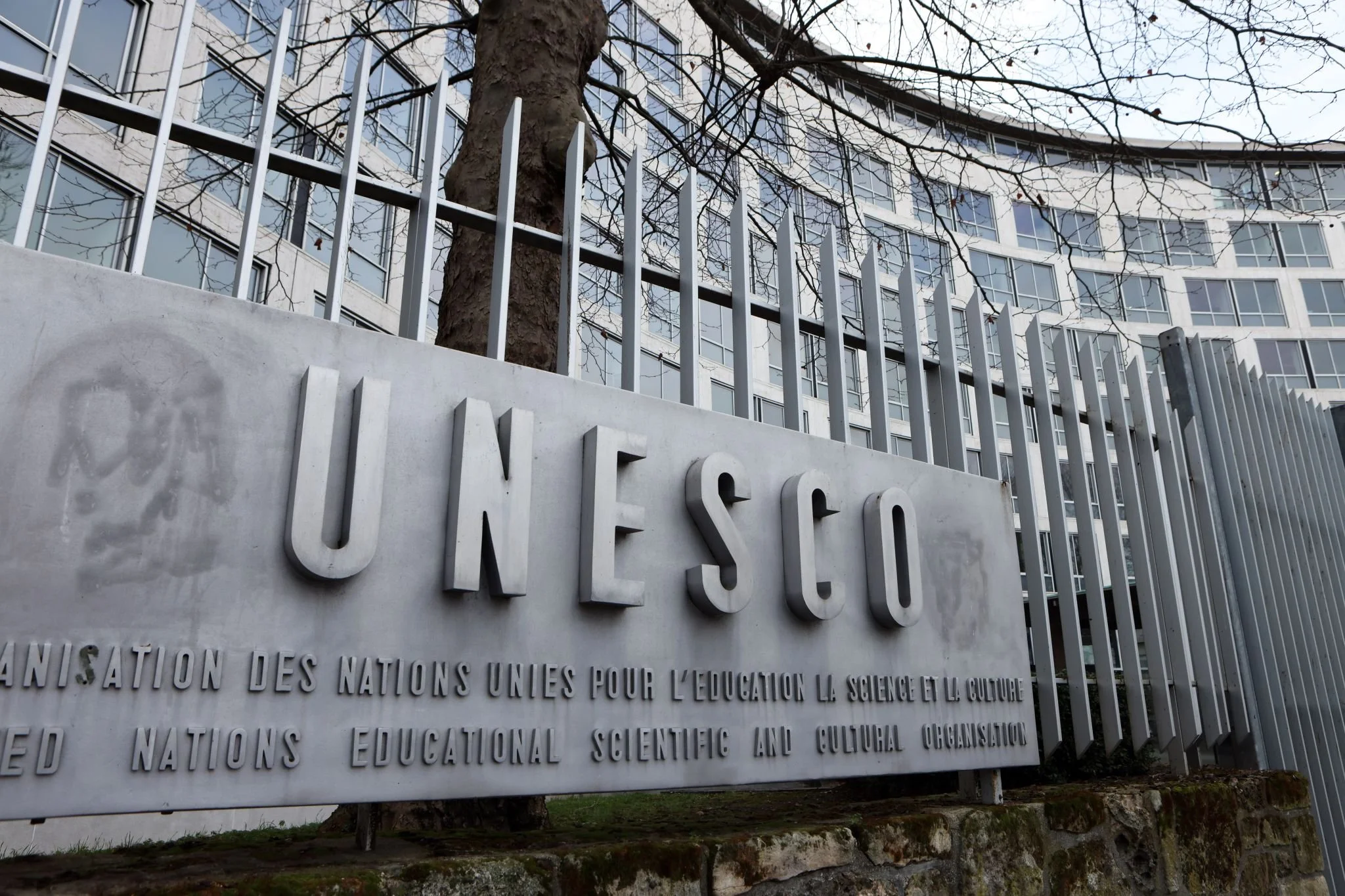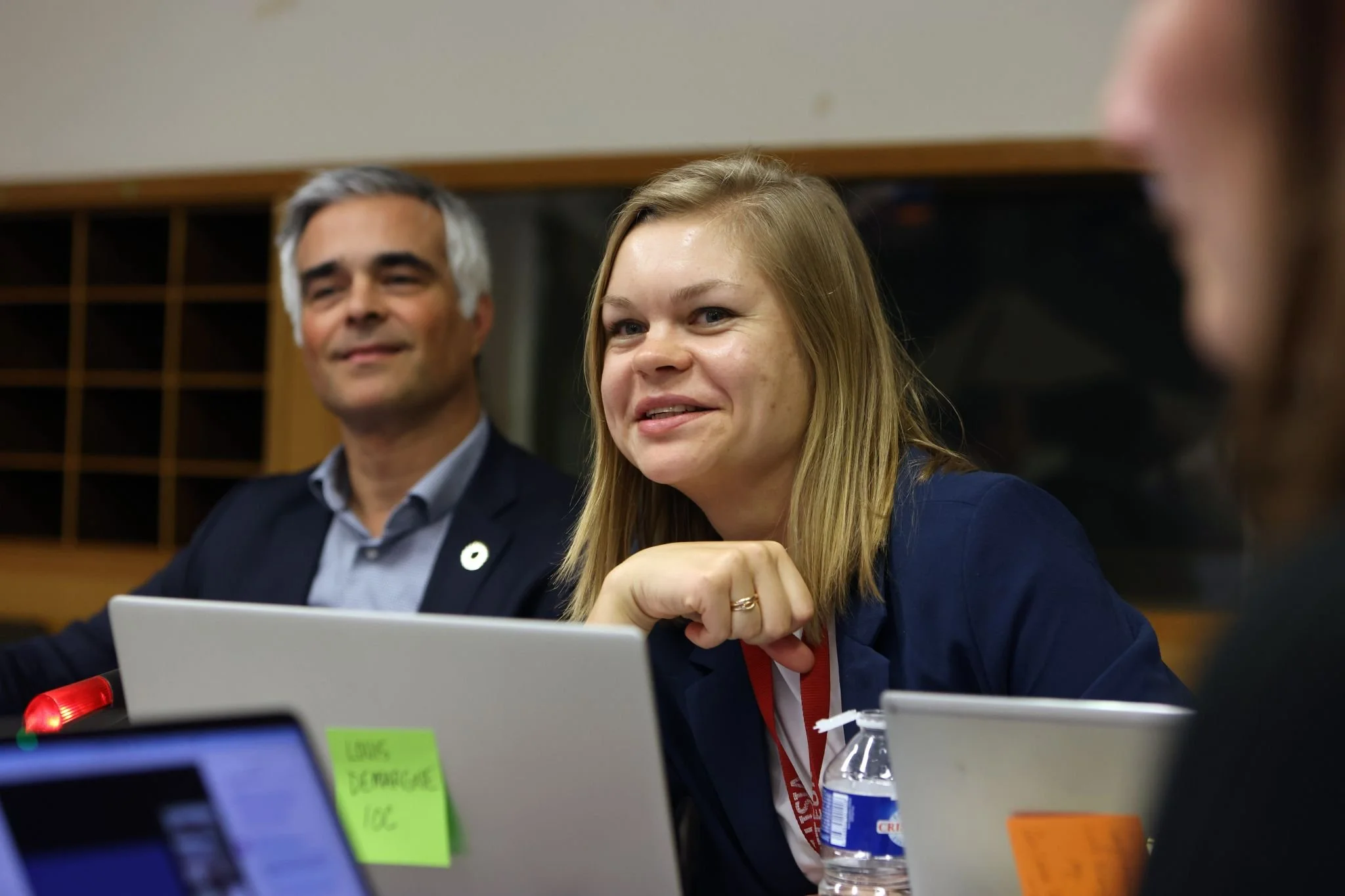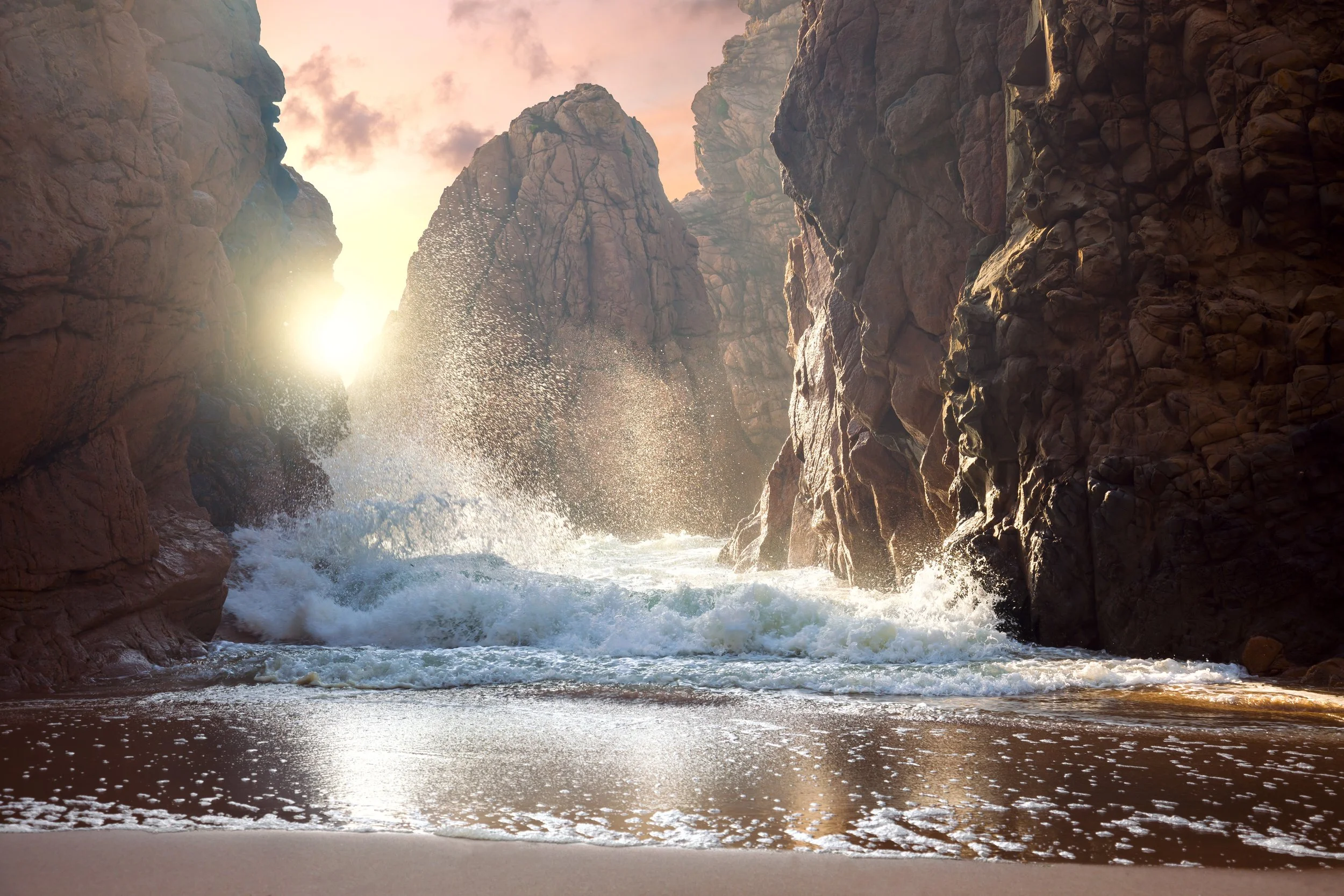2023
ANNUAL
REPORT
Message from the CEO
On an early August day in 2023, I sat nervously on the edge of a small boat, ready to dive into the cold waters of Lofoten in the Norwegian Arctic Circle. Beside me, the 88-year-old marine biologist, explorer and legend Sylvia Earle gave a thumbs up and fell backwards into the water. Inspired by her, I quickly followed.
Underwater, I marvelled at the beauty of the clear water, kelp and colours. The sun provided the most beautiful lighting from above. And then it struck me as I looked around: there were no fish.
Knowing that fish are still thriving in Lofoten, it must have been an unlucky moment, but the worry was there. “What are we doing to our ocean?” I wondered as we glided through the fjord. This is one of my strongest ocean memories from 2023.
At HUB Ocean, we are committed to changing the fate of the ocean using data, technology, and collaboration. Our goal isto transform the fragmented ocean data landscape into a unified collection that fuels deeper insights and a more significant impact.
In 2023, partnerships with industry leaders willing to share valuable data began to materialize. Aker Biomarine, a biotech company, unlocked ten years of acoustic data on krill biomass in Antarctica and shared it on the Ocean Data Platform. Scientists now use this data to learn more about these fragile ecosystems.
Many exciting projects and use cases are in the pipeline for 2024. We progressed the conversation with other forward-leaning companies in industrial ocean data sharing, such as Ecowende, PGS, Aker BP, and IKM. With Bahr as our legal partner, we navigated many legal considerations to support data sharing.
We have engaged in advocacy work around measuring and baseline climate and biodiversity footprints. We want to develop the first Making Oceans Count project further with the Green Digital Finance Alliance and Copenhagen Business School.
An exciting collaboration with our partner, Mercuria, resulted in the Citizen Sea App, where seafarers can report their observations when crossing the oceans.
They and we are all committed to transforming data into insights, promoting transparency, and encouraging businesses to adopt less harmful practices.
We are proud to support public sector projects like the Iliad Digital Twin of the Ocean and Blue-Cloud 2026, which aim to create digital twins in EU waters and deliver FAIR and open data and analytical services, respectively.
Now turning to the technology that is so integral to our mission. We have innovated and learned every day in 2023. Our Ocean Data Platform (ODP) has become an advanced geospatial data platform. ODP supports a wide range of ocean data, offering dramatically improved “findability” of data to users of all skill levels. It also serves data-savvy professionals via a user interface and workspace tools, allowing them to store data on the cloud-based platform and bring compute to their data. We are excited about the capabilities that are coming to life on the platform, and chief among them are the data products that will drive impact and start to develop this year. data to flow towards the impact we aim for.
In summary, 2023 was a year of significant progress. We are grateful for our passionate colleagues, partners, data contributors, and supporters.
Much remains to be done, and we will continue our efforts such that the fish that grace the waters around Lofoten, the vulnerable coral reefs around the globe, and all of us who depend on our ocean to continue to perform its incredibly important role for us can thrive.
- Kimberly Mathisen, CEO
IMPACT
Celebrating our first use case for unlocking ocean data, we made significant strides in 2023 across various sectors—fisheries, energy, shipping, aquaculture, and finance. We continue integrating and sharing valuable ocean data on the Ocean Data Platform through these efforts.
Fisheries
The breakthrough industry contribution in 2023 emerged from the krill fishing company Aker Biomarine, which unlocked ten years' worth of acoustic data from its missions to the Southern Ocean and shared it over the Ocean Data Platform. This is just the beginning, and we look forward to more such contributions in the future.
Scientists are already using the Acoustic krill dataset to help decision-makers improve fishery management and ensure sustainable krill catches. According to CCAMLR (Commission for the Conservation of Antarctic Marine Living Resources), using fishing vessels for monitoring is becoming an integral part of stock assessment, as there is limited ship time available on research vessels. This highlights the importance of such datasets in comprehensive marine resource management.
We hosted a series of workshops on ocean data sharing – in collaboration with the Intergovernmental Oceanographic Commission (IOC) of UNESCO and under the UN Ocean Decade framework. The data focus of the workshops was both biodiversity data and metocean data.
A great interdisciplinary example came forth when we asked more than 20 ocean scientists from Europe, the US, and the Middle East working with ocean models how they use industrial ocean data, what impact and value it adds to their research, and what data gaps need addressing. Stakeholders from industry and governments joined them to identify three modelling use cases that could:
— improve wind and wave forecasting;
— estimate the impact of storm surges, meteo tsunamis, and heatwaves on industrial assets and operations at sea;
— estimate the impact of coastal shallow shelf processes on power and fibre cables on the seafloor.
Ocean Data Workshop
Energy
Collaborating with Aker BP, we have made significant progress toward unlocking decades of ocean data from the oil and gas industry, facilitating greater environmental transparency in the Norwegian Sea.
Towards the end of 2023, we entered a pilot project with IKM, which uses remotely operated vehicles (ROVs) to monitor offshore oil and gas infrastructure. Valuable ocean data, such as currents, temperature, and salinity, from the ROVs operating on structures in the North Sea, will be shared on the Ocean Data Platform to make the oil and gas industry more transparent and sustainable.
Another exciting pilot project emerged late in 2023: a collaboration with the global geophysical company PGS and its sharing of 15 years of marine mammal observational data off the coast of Brazil.
Our work within the UN Ocean Decade Corporate Data Group has led to the publication of key insights on the industrial benefits of sharing ocean data. The Ocean Data Platform has also been recognized in the UN Global Compact's report as a catalyst for tangible progress in the realm of industrial ocean knowledge sharing.
Shipping
About 80% of goods are shipped across the ocean. As technology advances, more ships become equipped with sensors, and seafarers can easily record their observations of the ocean. This makes collecting ocean data easier and more accessible.
Together with our partner Mercuria, we have developed Citizen Sea, a citizen science app for seafarers, which will be available on the Apple Store and Google Play. The app lets anyone take or upload photos of the ocean. Users can label their photos with category, date, time, and location and share them with us so that valuable and relevant ocean data is stored on the Ocean Data Platform.
We have started on a journey to collaborate with Woods Hole Oceanographic Institute and their Science Research on Commercial Ships ("Science RoCS") program, which leverages the global fleet of commercial vessels to collect oceanographic data;
We continue our knowledge partnership with Maersk McKinney Møller Center for Zero Carbon Shipping, which aims to accelerate the transition to a carbon-neutral maritime industry. We also participate in the Sustainable Shipping Initiative, which brings together diverse actors to drive systemic change towards a more sustainable and resilient shipping sector.
Through these partnerships, we have run several pilots. We onboarded ocean data streams to the Ocean Data Platform, our open and collaborative platform that enables access, integration, and analysis of ocean data from multiple sources and formats.
Aquaculture
Partnering with OPS Sjømat, our Salmon Lice Monitoring App has been celebrating one year of running and is now used in daily operations by the Norwegian aquaculture sector. The solution is built on data from Norwegian salmon farming industry locations and works towards reducing the industry's footprint, securing biodiversity, and increasing access to nutritious food.
Finance
Our work in the finance sector relates to ESG reporting and frameworks, where a systemically vital shift occurs. Companies and financial institutions will increasingly be asked to report on their climate and biodiversity footprint. One major source of this work is the Taskforce on Nature-related Financial Disclosures (TNFD), which represents a strong guiding light. We have established an increasingly deep collaboration with them in ocean impact metrics.
On our side, we further developed a tool providing structured insight to Nordic financial institutions to monitor their ocean impact. It was created with Copenhagen Business School, Green Digital Finance Alliance, S&P Global and WWF Denmark. We took part in presenting the tool at the Making Oceans Count event at the very end of 2022. Along with CBS and GDFA, we are taking Making Oceans Count to its second phase (MOC2). Expanding on the achievements of its predecessor, MOC2 will initially focus on further enhancing metrics related to the shipping industry, then broaden its scope to include offshore renewable energy as another critical sector.
Adventures. Ocean data music
Håkon Kornstad, an internationally acclaimed musician, transformed ocean data into music–his project as an intern at HUB Ocean. By sonifying variables like sea temperature and salinity, he created compositions that convey the changes in the ocean, aiming to raise awareness and evoke emotions through music. Read more.
KNOWLEDGE
Through our collaborations with stakeholders in science, industry, and governance, we are building ocean knowledge and generating insight. Here are some key projects and initiatives.
Ocean Data Action Coalition
Through the High-Level Panel for a Sustainable Ocean Economy’s Ocean Data Action Coalition (ODAC), which HUB Ocean co-leads with Microsoft Corporation, we foster increased industrial data sharing for a more profound impact.
Friends of Ocean Action
Our CEO, Kimberly Mathisen, continued her involvement as a Friend of Ocean Action — a coalition of leaders dedicated to expediting solutions to urgent oceanic challenges.
C4IR Network and the World Economic Forum
As part of the Center for the 4th Industrial Revolution Network (C4IR) in the World Economic Forum, our mission has been to promote industrial ocean data sharing for critical use cases such as shipping, offshore wind, sustainable fishing and ocean finance. We were proud to contribute to the Centre for the Fourth Industrial Revolution Network Impact Report 2022-2023. We have been partners on several World Economic Forum UpLink Innovation Challenges, led community discussions via Network events and raised the profile of critical ocean data problems.
On the last day of 2023, HUB Ocean stepped out of the C4IR network at the World Economic Forum. We look forward to continuing our collaboration with the World Economic Forum through Aker ASA´s strategic membership.
Iliad, Digital Twins of the Ocean
Alongside 55 partners from 18 countries, HUB Ocean works as part of the Iliad Consortium to develop Digital Twins of the Ocean. These digital representations integrate EU ocean observations, modeling infrastructures, and computing facilities, providing decision-making tools for governments and industries. Learn more.
Blue Cloud-2026
Along with 40 partners, we are part of the Blue-Cloud consortium, which aims to evolve into a Federated European Ecosystem to deliver FAIR and open data and analytical services instrumental for deepening research of the ocean, EU seas, coastal and inland waters.
WIO Symphony
HUB Ocean contributes to WIO Symphony, a marine ecosystem-based spatial planning tool for the Western Indian Ocean. Developed in collaboration with the Swedish Agency for Marine and Water Management and ten member states of the Nairobi Convention, HUB Ocean contributed shipping data from the ODP to assess environmental pressures such as emissions, noise, and whale collision risks.
UN Global Compact Ocean Stewardship Coalition’s report
Our contributions to the UN Global Compact Ocean Stewardship Coalition’s report have delivered pivotal insights and practical guidance for governments and the offshore wind sector, fostering improved data exchange for more effective marine spatial planning and responsible ocean governance. We also contributed to CitiGroup’s Sustainable Ocean Economy report, which delved into the business case for ocean action and engagement.
Adventures. Lofoten
In September, Kimberly joined 25 ocean experts and enthusiasts aboard an ocean exploration vessel in the North of Norway. Marine Biologist Sylvia Earle and Planetary Boundaries scientist Johan Rockstrom were notably on the vessel. Read more.
PLATFORM
In 2023, our Ocean Data Platform (ODP) underwent substantial architectural enhancements, significantly boosting its accessibility and functionality. Undoubtedly, the most significant advancement was the introduction of our API, which has revolutionized the flow of information and interoperability. Link to API.
Our efforts continued; we delved deep into contextualizing geospatial and temporal data. We've streamlined data handling and analysis by integrating a geo-parquet data format complemented by spatial partitioning and Blob storage.
“The ODP has been instrumental in processing the files. The conversion of raw echosounder data into 10-minute NetCDF files is nearly complete. It now takes around five days using a 4-node Dask cluster, a task that previously took many weeks on a local PC.”
Sebastian Menze, postdoctoral researcher at the Norwegian Institute of Marine Research
As we rounded out the year, we invited more trial users, especially from the scientific community, onto the platform. We now have a broader data catalogue and robust support for raw and tabular data uploads and access. For 2024, our platform roadmap includes extending capabilities such as gridded data formats and collaborative features and onboarding more users. Learn more about the ODP here.
OUTREACH
Events were vital in building visibility and engaging with global stakeholders across sectors. Here are the most significant events we participated in.
COP28
In partnership with Microsoft and supported by Accenture, we hosted a session at COP28 in the UAE under the High-Level Panel for a Sustainable Ocean Economy umbrella. The event was held with the Indonesian government at their country pavilion. The focus was accelerating countries' efforts toward sustainable ocean governance through increased data sharing.
World Ocean Summit
At the 10th World Ocean Summit, attended by over 1,500 stakeholders, our CEO engaged in a panel discussion on sharing ocean data. The session emphasized the importance of taking action with available data while continuously improving. The Ocean Data Action Coalition aims for a globally shared data revolution for sustainable ocean management.
Partner Event
We gathered partners from Norway and around the globe for the 2023 Partner Event, which featured presentations, workshops, and discussions exploring how ocean data can address global challenges such as managing the ocean, transitioning to renewable energy, sustainable food production, green transport, and sustainable investments, as well as reducing emissions and pollution.
High-Level Climate Week
Our CEO, Kimberly Mathisen, participated in several events during the High-Level Climate Week in New York, including the Planetary Guardians event with Sylvia Earle and Johan Rockstrom. We also co-hosted a roundtable discussion on "Measuring Human Impact on Ocean Health" with Ted Janulis, founder of Investable Oceans, bringing together leaders from various sectors.
Arendalsuka
In August, we took part in Arendalsuka, Norway's biggest political event.
Our CFO, Martin Styrmoe Moen, participated in a debate organized by Accenture Norway and UN Global Compact Norway on "How to handle increasing global challenges and strengthen sustainability efforts?"
Our Director of Communication and People, Vigdis Hvaal, presented our work at the Statkraft, PwC Norway, and Mainstream Renewable Power event titled "How will the nature crisis affect business, and how can offshore wind show the way to nature-positive solutions?"
PEOPLE
Team
In 2023, our dedicated team strengthened and was united by a shared vision and commitment to our cause, with a strong focus on fostering diversity in recruitment.
We strengthened our organization substantially with software engineering skills and technical competence to continue building a scalable and stable back-end: the Ocean Data Platform.
At the end of 2023, our employees consisted of 27 people. We've achieved gender parity through a 48%—52% ratio. Of our employees, 13 are women, and 14 are men. In our hands-on management team, 3 of 7 are women, including the CEO.
We aim to mirror the world through our employees. At the end of 2023, our employees came from 11 countries: India, Spain, Norway, China, Sweden, India, Russia, Turkey, the United Kingdom, France, and the United States.
Adventures. Top 50 Women in Tech
Our Science Lead, Anna Silyakova, was named one of Norway’s Top 50 Women in Tech by Norwegian associations Oda and Abelia. Over the past two years, Anna has worked to build up HUB Ocean’s connections to the global ocean science community to achieve a healthier ocean. Read more.
Board updates
Our board welcomed two new members in 2023, Elisabeth Brinton and Jeremy Jurgens, bringing valuable expertise to our organization.
The board also consists of Nina Jensen, CEO of REV Ocean; Øyvind Eriksen, President and CEO of Aker ASA; and Kjell Inge Røkke, Norwegian businessman and principal owner of Aker ASA.
FINANCIALS
Our partners played a crucial role in making a significant impact in 2023. AKER ASA remains HUB Ocean's primary funding source, but in 2023, we succeeded in increasing other funding by 9%.
A substantial part of our revenue is derived from strategic partners, including Microsoft, Accenture, Mercuria, and BAHR. We have also received significant contributions from the European Union and various public sector sources.
We remain on the path to diversifying funding and creating revenue streams from data projects and products, that are consistent with our mission to create ocean impact.
In summary, 2023 has been a year of forging robust partnerships and building a dedicated team; all focused on our mission of unlocking ocean data across countries and sectors. Our significant platform build-out represents the core of who we are and what we aim to do: changing the fate of the ocean. We are excited to sustain this momentum and strive for a healthier and more sustainable ocean.
In 2024, we remain committed to our cause and confident in our collective ability to make a meaningful impact.


























